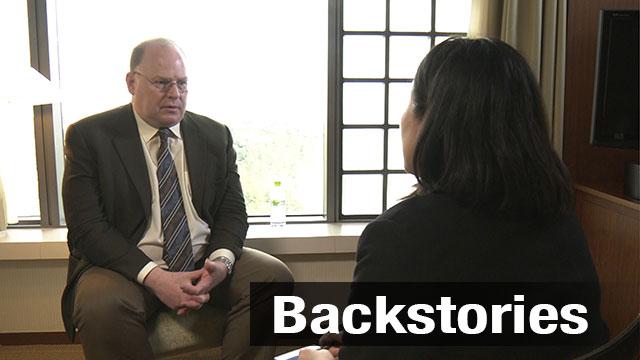
The era name, Gengo in Japanese, is used everywhere in Japanese daily life. You can find Gengo on calendars, newspapers, currency and more.
Professor Kenneth Ruoff of Portland University has studied Japan's Imperial system since the late 1980s. He says the use of Gengo serves as a reminder.
"On a daily basis, it's not something that the Japanese think too much about. But if they have to fill out any sort of official form, they have to use the reign name system and so that reminds them that Japan has a monarchy."
U.S. Expert on the Imperial household
Professor Ruoff says given the system's continued importance in society, the era name is also significant.
He says, "The era name is definitely part of Japanese identity. This is the system by which the Japanese are officially required to count years according to the reign name of any given Emperor. As a result of this, Japanese are reminded regularly, it's a sort of a soft form of nationalism."
Era name captures the future of Japan

The present era "Heisei" means achieving peace.
It was decided by the government based on terms in classical Chinese literature.
Now, the process of selecting a new name is underway,
the government officially asked scholars to consider multiple names and one will be decided on by the cabinet on April 1.
Professor Ruoff says, "I would imagine you know it's just incredibly difficult to get it down from apparently 100 choices at one point, they'll get it down to 10 and then to three. And apparently the cabinet will debate the final three choices and then it's just going to decide within about two hours."
An event like the Moon landing

The announcement will be a huge nationwide event. Professor Ruoff compares it to how Americans reacted to the moon landings.
When the moon landings happened, about 80% of Americans just stopped what they were doing and watched television, Ruoff said.
"This is not quite as much of a world event, but for the Japanese I think most of the Japanese will just stop what they're doing at that point and go watch the television announcement of the New name and then everybody will talk about it."

